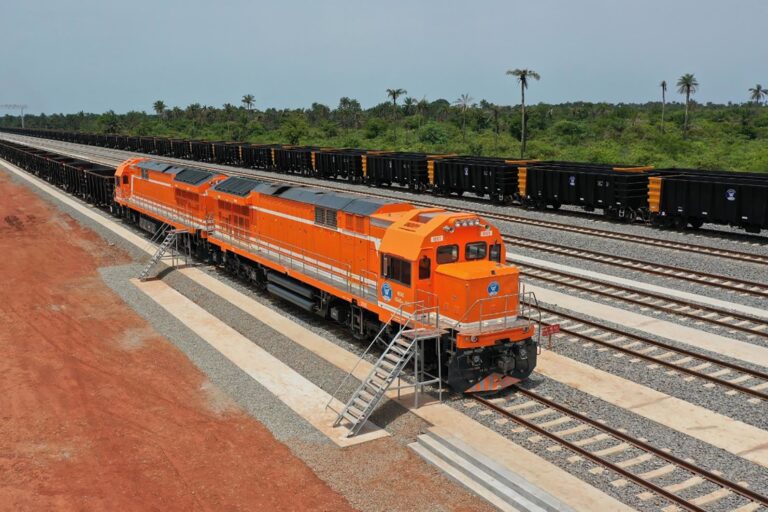Mining activities at Guinea’s Simandou iron ore megaproject are polluting waterways and degrading agricultural land, according to community representatives and advocates who spoke at a recent press briefing. Their concerns were supported by a study of water and soil samples from seven towns downstream of the mine. The study, conducted in February by the Council for Scientific and Industrial Research in Ghana, showed dangerously high acidity in the town of Badoula, near the mine. The study notes that the contamination is “clearly linked to anthropogenic pollution, particularly from ongoing mining activities in the Simandou Mountains.” In another town, dissolved solids in the water sample were said to be too high to cultivate rice. Export of Simandou’s iron ore has been an elusive government goal for decades. The ore is finally set to reach export markets by the end of this year; the deposits are expected to produce upward of 120 million tons of ore per year. The project’s four development blocks are owned by two consortia, which include the British-Australian mining giant Rio Tinto, a number of Chinese and East Asian companies and the Guinea government. China has taken a particular interest in Simandou, which is estimated to contain as much as 1.5 billion metric tons of ore. The mine is projected to erode Australia’s dominant position in global iron ore export markets. Simandou’s high-quality iron ore can be refined using “green” hydrogen-based steelmaking techniques, which will produce far fewer carbon emissions. However, in addition to polluting water and soil,…This article was originally published on Mongabay
Search
Recent Research
Want your Blog Article featured on our website?
Research
Featured News
Explaining Katsina’s Massive Leap to 2nd Position in the 2025 Climate Governance Ranking
In 2024, during the first edition of the Subnational Climate Governance Performance Rating and Ranking,
COP30: Firm to connect institutions with international climate finance opportunities
SISTME, a climate change and biodiversity conservation consulting firm based in Argentina, has offered to
From resistance to planetary governance, Indigenous women redefine global climate action
While world leaders negotiate behind closed doors in the Blue Zone of COP30, Indigenous Women
Sahara Group Foundation launches 16th Sahara Go Recycling Hub to boost environmental sustainability, economic empowerment
Sahara Group Foundation, the corporate social impact arm of Sahara Group, has commissioned its 16th
Climate finance is the lifeblood of climate action – Simon Stiell at COP30
Remarks delivered by UN Climate Change Executive Secretary, Simon Stiell, at the third High-Level Ministerial
UNDP, REA, GEF commission Plateau solar mini-grid to power agricultural value chains, empower rural communities
The United Nations Development Programme (UNDP), in partnership with the Rural Electrification Agency (REA) and
COP30: Africa urges world leaders to turn pledges into action
Africa has called on the world leaders to turn their pledges into action regarding the
Thousands join global marches calling on govts at COP30 to deliver climate justice
An estimated 30,000 people marched through the Brazilian city of Belém on Saturday, November 15,


